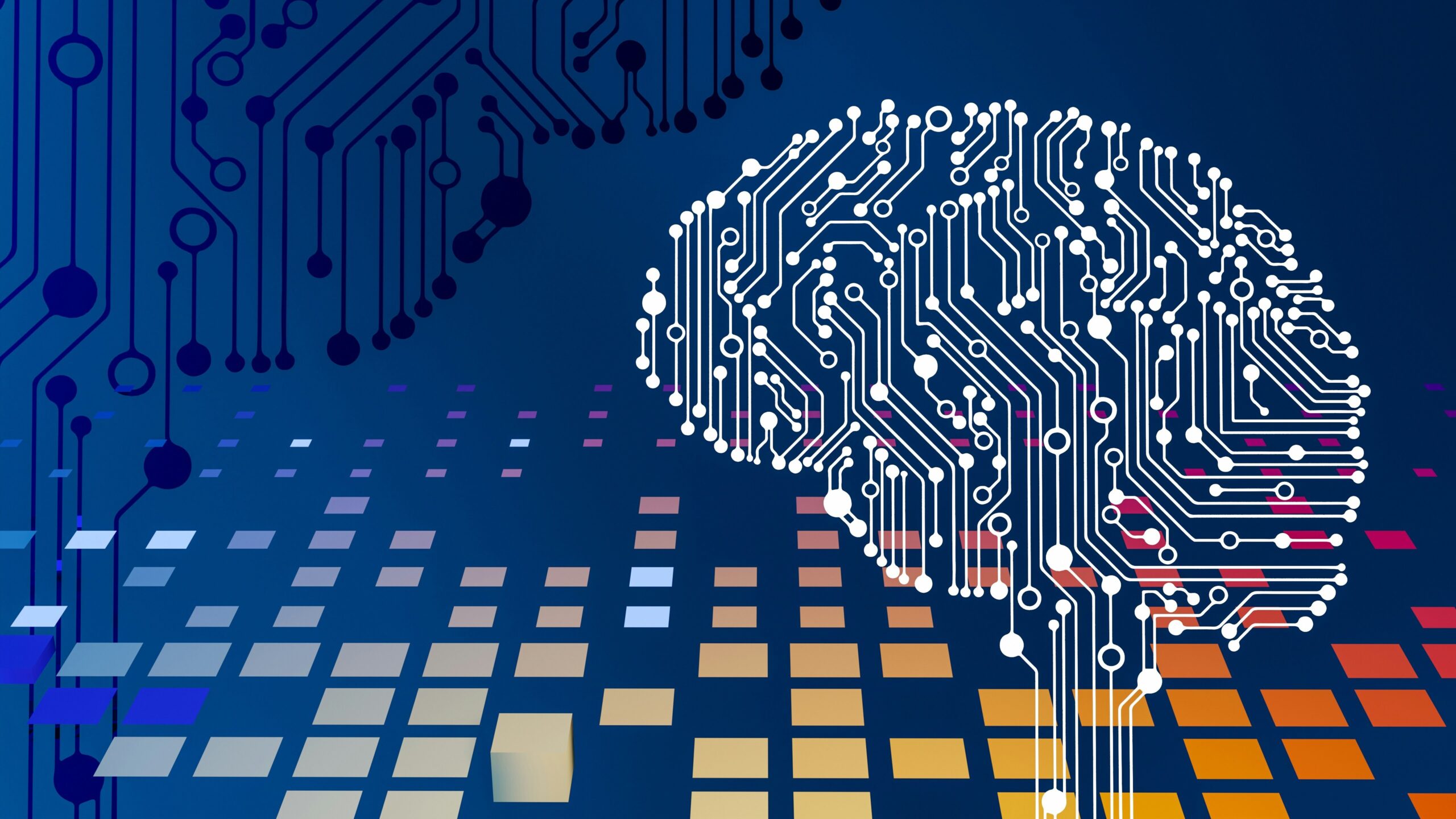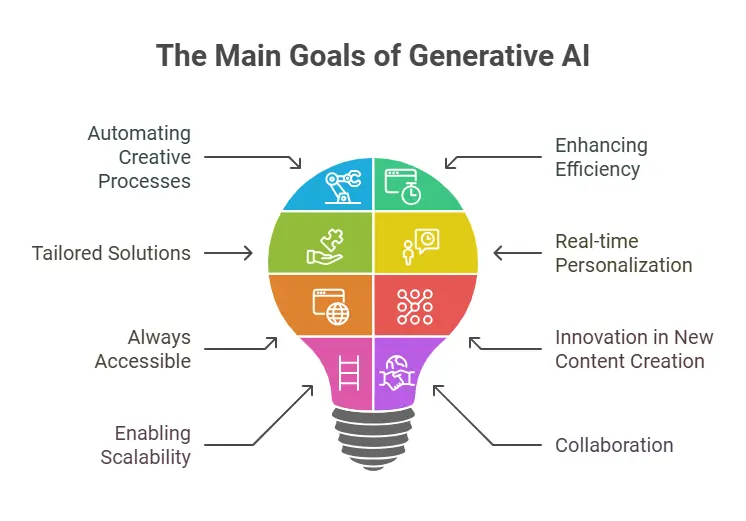Artificial Intelligence (AI) is no longer a futuristic concept—it is a transformative force in our daily lives. From voice assistants to personalized shopping experiences, AI has seamlessly integrated into various aspects of our routine activities. In this blog, we will explore the advantages of AI in daily life, how it enhances convenience, productivity, and efficiency, and the role it plays in shaping the future.
Enhanced Personalization and Convenience
One of the most prominent benefits of AI is its ability to personalize services and experiences based on individual preferences. Whether it’s recommending a playlist on Spotify or curating shopping suggestions on Amazon, AI algorithms analyze your behavior and tailor recommendations to suit your interests.
For example:
- Voice Assistants: AI-powered assistants like Amazon Alexa, Google Assistant, and Apple Siri make our daily tasks simpler by helping with everything from setting reminders to controlling smart home devices.
- Streaming Services: AI helps platforms like Netflix and YouTube understand your preferences and suggest movies or videos you are more likely to enjoy.
These personalized experiences save time, reduce decision fatigue, and make interactions with technology more intuitive and user-friendly.
Improved Efficiency in Everyday Tasks
AI has the power to streamline everyday tasks, making them faster and more efficient. By automating routine activities, AI allows individuals and businesses to focus on more strategic and creative pursuits. Some examples include:
- Smart Home Devices: AI-powered thermostats, such as Nest, learn your daily routines and adjust the temperature to your preference, saving energy and money.
- AI-Powered Virtual Assistants: These assistants not only perform basic tasks like setting reminders but also manage schedules, send emails, and even respond to messages, reducing the burden of manual tasks.
Through automation, AI enables a smoother, more efficient day-to-day life, allowing us to focus on what matters most.
Better Healthcare and Medical Assistance
AI is making significant strides in the healthcare sector, improving both the quality and accessibility of healthcare. From diagnostic tools to treatment recommendations, AI is helping medical professionals make faster and more accurate decisions.
- AI in Diagnostics: AI systems can analyze medical images, detect early signs of diseases like cancer, and help doctors make quicker diagnoses.
- Personalized Treatment Plans: AI algorithms analyze a patient’s medical history, lifestyle, and genetic data to suggest personalized treatment options.
- Healthcare Chatbots: AI-powered chatbots, like those used by healthcare providers, offer patients a way to get quick advice or answers to basic health questions without needing to visit a doctor immediately.
By improving diagnostics and treatment plans, AI is not only enhancing patient care but also making healthcare services more accessible to a broader audience.
Enhanced Transportation and Navigation
AI is revolutionizing the transportation sector, making travel more efficient, safe, and sustainable. From ride-hailing apps to self-driving cars, AI is optimizing the way we get from one place to another.
- Self-Driving Cars: Companies like Tesla, Waymo, and Uber are working on autonomous vehicles that use AI to navigate and drive safely without human intervention. These vehicles have the potential to reduce accidents caused by human error and improve traffic flow.
- Smart Traffic Management: AI can help cities optimize traffic light patterns, monitor congestion, and even predict traffic trends, reducing commute times and improving air quality.
- Navigation Apps: AI-powered apps like Google Maps and Waze offer real-time traffic updates, suggest alternate routes, and help you find the quickest way to your destination.
With these advancements, AI is making transportation safer, more efficient, and less stressful for individuals around the world.
Boosting Productivity and Work Efficiency
In the workplace, AI is streamlining processes and boosting productivity. By automating repetitive tasks and assisting with complex decision-making, AI allows employees to focus on more valuable and creative aspects of their jobs.
- Task Automation: AI-driven tools like chatbots, virtual assistants, and CRM software automate administrative tasks, such as scheduling meetings, responding to emails, and managing customer inquiries.
- Data Analysis: AI helps businesses analyze vast amounts of data, uncover patterns, and make data-driven decisions faster than traditional methods.
- Project Management: AI-powered tools help track project progress, assign tasks, and identify potential bottlenecks, ensuring that projects stay on schedule and within budget.
With AI handling routine tasks, workers can focus on higher-level problem-solving and innovation, leading to improved productivity across various industries.
Improved Safety and Security
AI plays a critical role in enhancing safety and security in our homes, workplaces, and public spaces. From monitoring systems to fraud detection, AI-powered technologies help protect us from potential threats.
- Surveillance Systems: AI-enabled security cameras can detect unusual behavior, recognize faces, and even alert authorities in case of an emergency. This is particularly useful for monitoring homes, offices, and public spaces.
- Fraud Prevention: AI algorithms are used in banking and finance to detect fraudulent transactions. By analyzing patterns and anomalies in financial data, AI can flag suspicious activities in real-time, preventing financial losses.
- Cybersecurity: AI is used to detect and prevent cyberattacks. Machine learning models can identify potential threats, analyze attack patterns, and even respond to breaches more quickly than traditional security methods.
In both physical and digital spaces, AI enhances security and ensures that we are protected from various risks and threats.
Environmental Benefits
AI has the potential to contribute to environmental sustainability by optimizing energy use, reducing waste, and enabling smarter resource management.
- Energy Efficiency: AI is used in smart grids and energy management systems to optimize energy consumption. For example, AI can analyze patterns in electricity usage and recommend ways to reduce waste, contributing to more sustainable living.
- Climate Change Modeling: AI-powered tools are helping scientists model and predict climate change impacts, allowing for better planning and decision-making to mitigate environmental damage.
- Waste Management: AI is also improving waste management by optimizing recycling processes and helping identify patterns in waste generation to reduce overall consumption.
By promoting sustainability, AI is playing a crucial role in creating a greener and more eco-friendly future.
Education and Learning
AI is transforming the education sector by providing personalized learning experiences and enhancing access to educational resources.
- Adaptive Learning: AI-powered educational platforms like Duolingo and Khan Academy use algorithms to adapt the curriculum based on the learner’s pace, ensuring that students receive a customized learning experience.
- Virtual Classrooms: AI-driven tools enable remote learning and virtual classrooms, allowing students to interact with instructors and peers in real time, regardless of location.
- Automated Grading: AI is used to grade assignments, essays, and exams, saving educators time and providing faster feedback to students.
By personalizing learning experiences and making education more accessible, AI is empowering students worldwide to achieve their academic goals.
Conclusion: The Future of AI in Our Lives
Artificial Intelligence is already reshaping the way we live, work, and interact with the world around us. From improving productivity and convenience to enhancing healthcare and sustainability, AI is proving to be a valuable tool that helps us navigate the complexities of modern life.
As AI technology continues to evolve, we can expect even more innovations that will make our lives smarter, more efficient, and more connected. The key to harnessing its full potential lies in balancing innovation with ethical considerations, ensuring that AI continues to enhance human lives while addressing potential challenges.
AI is not just a buzzword; it’s a catalyst for positive change in our daily lives. Embracing this technology will undoubtedly pave the way for a more efficient, productive, and sustainable future.






